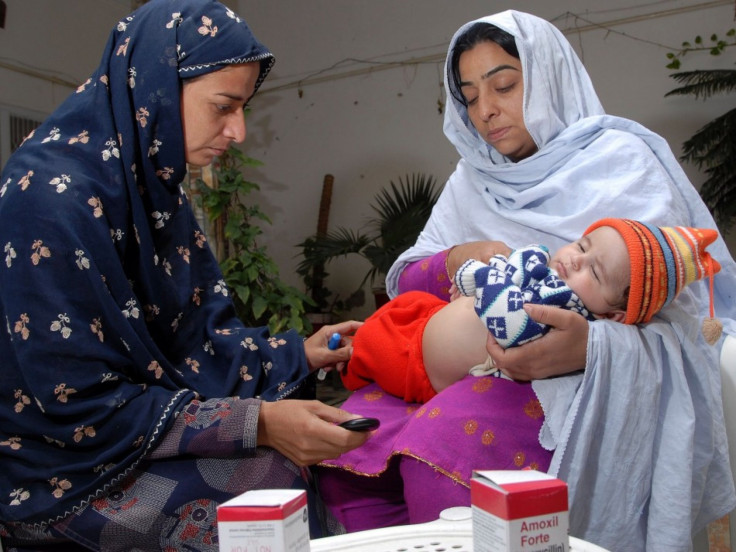Impoverished Children with Pneumonia Fare Better with In-house Treatment

Children in impoverished regions with severe pneumonia fare better with in-home care than more common hospital referrals, according to a study released Thursday, a potential policy game-changer that could help save millions of children.
The study was part of a 10-year international effort to understand how to best treat pneumonia, the leading killer of children under five years old that annually kills 1.4 million children.
The study focused on lady health workers in Pakistan, a program that started in 1994 to bridge the healthcare gap between impoverished rural and urban regions with access to hospitals.
The new results point to potential alternative treatments for a preventable disease that hits developing regions the hardest.
Save the Children, a non-profit that coordinates global efforts for child welfare, headed the study that was funded by the U.S. Agency for International Development and coordinated by the World Health Organization. The study appeared in The Lancet on Thursday.
Pneumonia is highly treatable with inexpensive antibiotics, yet it remains the world's number-one killer of children, Save the Children President and CEO Carolyn Miles, said. Today's results point to an extremely promising and practical way to reduce child deaths from severe pneumonia in the hardest hit communities. Training and supporting more frontline health workers is at the heart of the solution.
Lady health workers in Pakistan receive 15 months of training and ongoing supervision before taking care of 150-200 families in their homes each month.
Previously, home nurses were allowed to treat children with severe pneumonia, when a child inhales and the chest contracts rather than expands, with only a single dose of antibiotics before referring the family to a clinic. Families tended not to follow up.
The World Health Organization currently does not endorse in-home treatment of severe pneumonia, but recommends hospital referrals. However, the study surveyed 3,211 children with severe pneumonia and found that five days post treatment, 18 percent of children referred to hospitals remained ill, whereas nine percent of those who received in-home care were sick.
The results of the Pakistan trial are very promising, and we will be looking closely at future studies, Elizabeth Mason, director of WHO's Department of Maternal, Newborn, Child and Adolescent Health, said. If we see similar results in other places, we can update the global guidance to make treatment much more accessible for families, help governments make the most of limited resources, and save more children's lives.
USAID Administrator Raj Shah added, This study adds to the evidence base that frontline health workers can safely and effectively manage illness and prevent child deaths, especially in communities where doctors and health facilities are out of reach for poor families.
The Lancet study comes two days before the third World Pneumonia Day on Saturday, an awareness campaign started by the Global Coalition against Child Pneumonia, a coalition of 125 policy, healthcare, academic and advocacy groups.
The Lancet also published two studies that give further directions on pneumonia prevention and treatment.
An analysis of pneumonia reports found that 90 million children contract seasonal flu annually, including 20 million cases of pneumonia caused by the influenza virus, preventable with vaccinations.
The researchers said the observation also adds to strategies to prevent and treat pneumonia.
Influenza is the second most common pathogen identified in children with acute lower respiratory infection [pneumonia] and contributes substantially to the burden of hospitalisation and mortality in young children, concluded the study authors, led by Harish Nair, population health scientists at the University of Edinburgh, UK.
Our estimates should inform public health policy and vaccine strategy, especially in developing countries. Our report should also help inform donor agencies in assigning funding priorities for novel vaccine development and implementation or other influenza prevention strategies.
The Lancet also published a study that showed that eliminating open-fire and dirty stoves reduces severe pneumonia in children by one third. A research team from the University of California, Berkeley led the study.
© Copyright IBTimes 2025. All rights reserved.





















